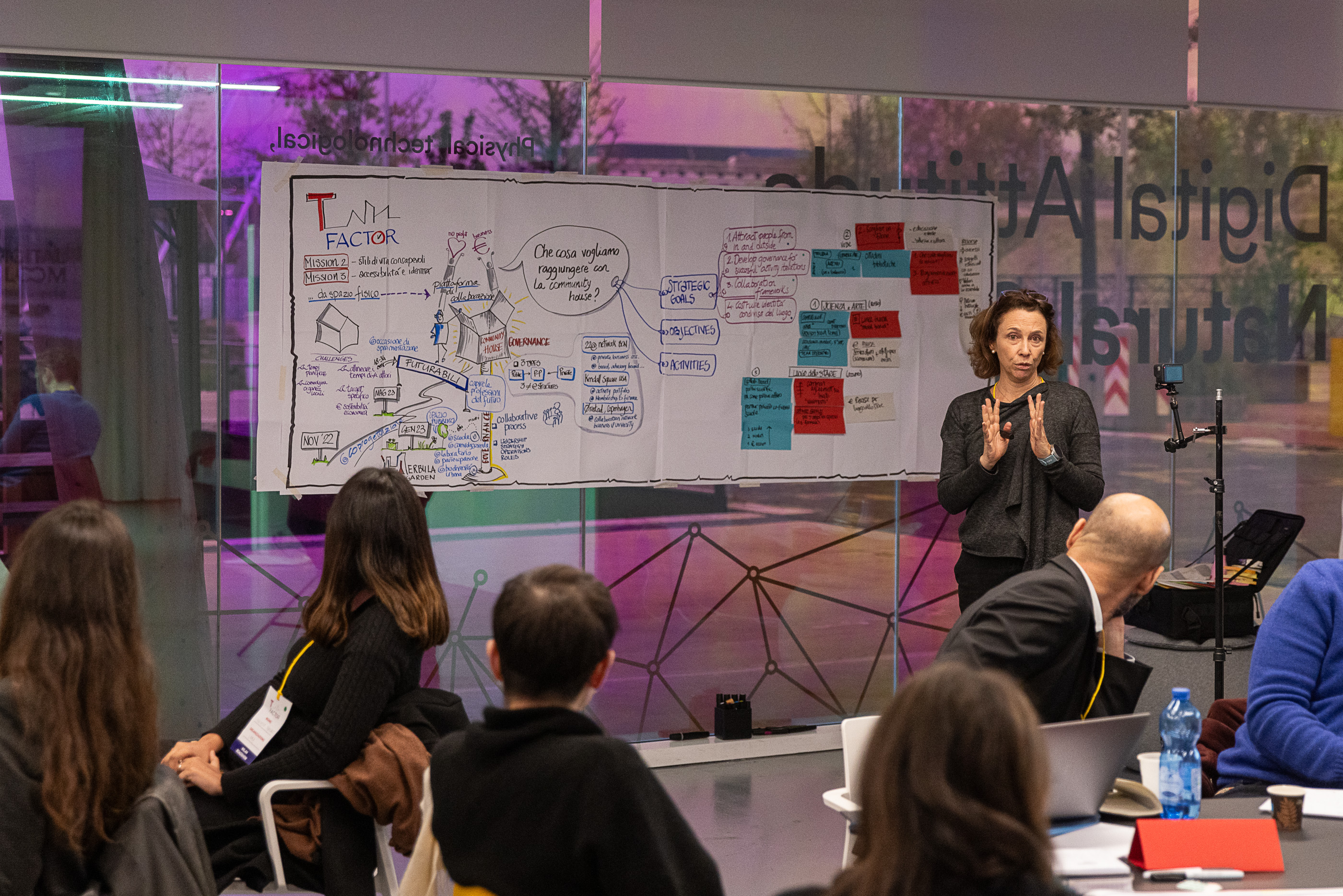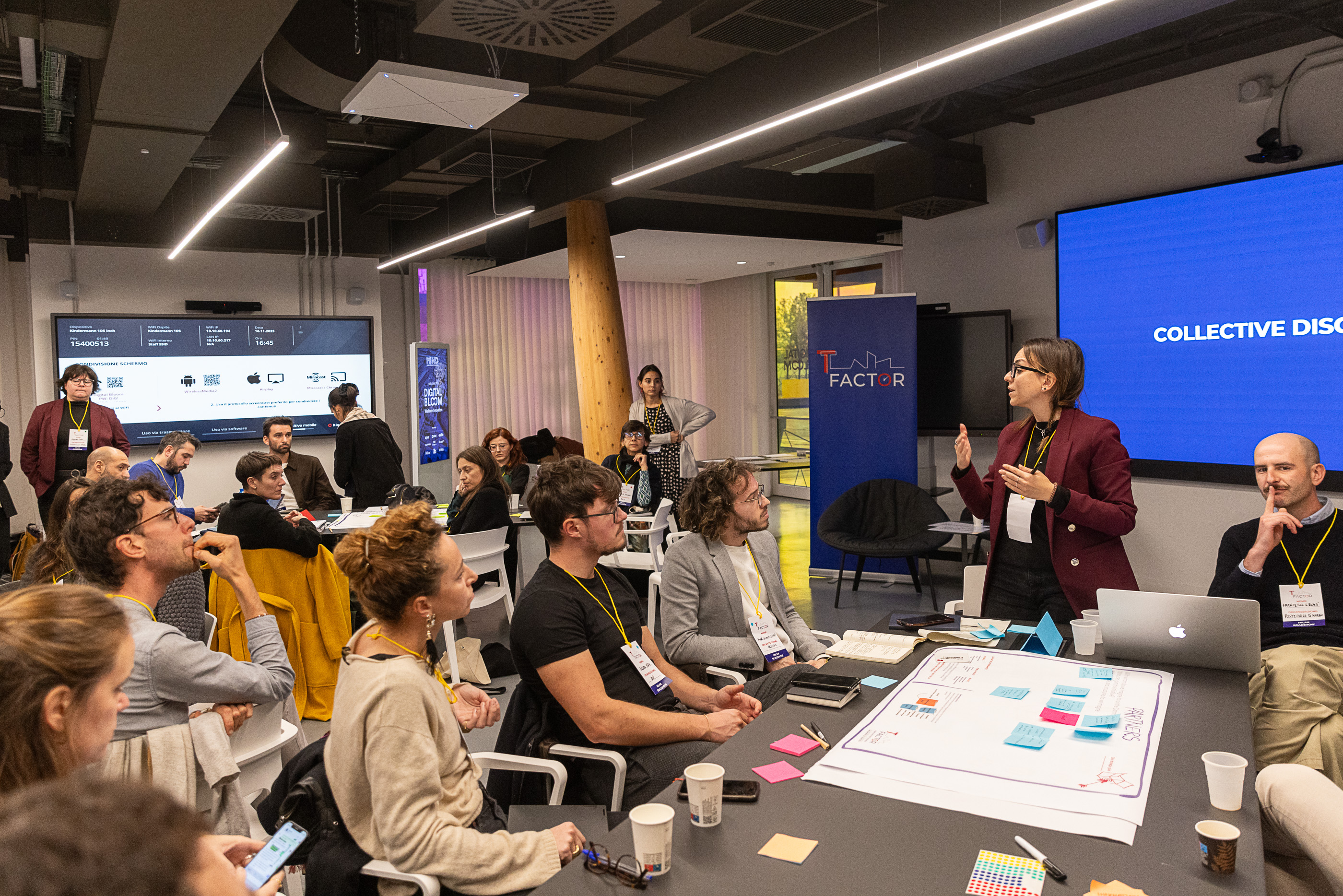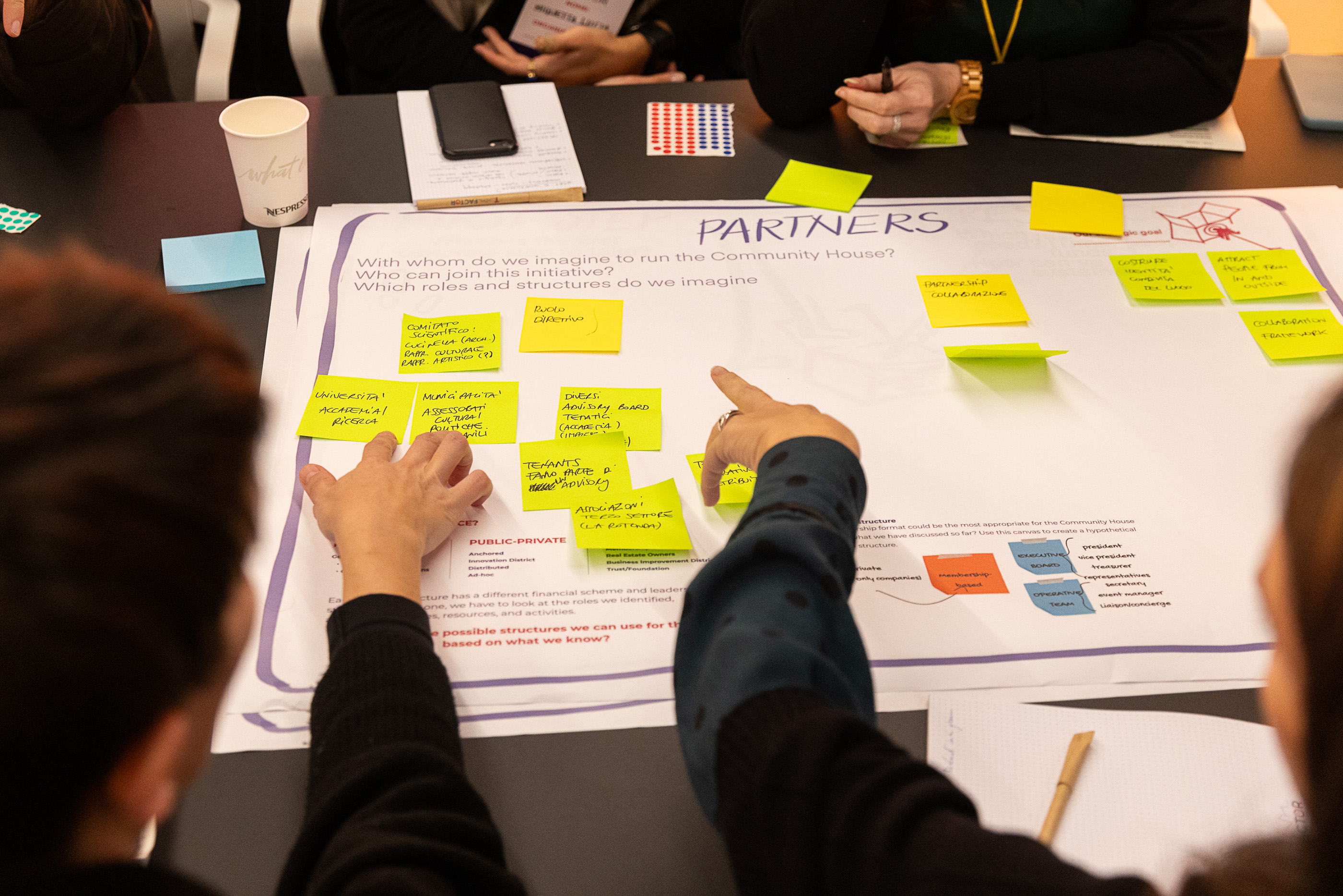During three years of project activities, it turned out that the connection with natural-like spaces is a very relevant topic for MIND’s surrounding communities, like residents and schools. What about the internal community, who works on the site everyday?
Within a wider collaboration with some international experts on the governance of meanwhile uses from T-Factor’s consortium, we focused our research on how companies can be engaged in the monitoring and maintenance of biodiversity through collaborative governance practices. We involved enterprises based at MIND under the so called Biodiversity Ambassador Program and initiated an experimental community engagement activities to monitor biodiversity using citizen science tools; we believed that this could trigger a sense of belonging and hopefully boost collaborative governance of green areas at MIND. Secondly, we leveraged on the interests of companies, often searching biodiversity KPIs to support their corporate sustainability strategies.
We involved almost 20 employees from 5 different companies. After receiving a tutorial on field, they monitored fauna and landscape transformation for 3 months at MIND with the open-source app “i-Naturalist” and trigger-panels installed onsite. The teams who accomplished their tasks, gained a voucher for free coffees at the bar. This action created a small community of nature-lovers among people working in the same place every day.
The feedback of participants were quite enthusiastic; they felt more sense of belonging to the place and were thrilled to discover animals and plants they would have never thought could live in the area. The results of this monitoring have been matched with scientific experts' results and collected in a broader guideline for biodiversity mapping in urban regeneration areas, called Bioscopium.
This activity actually responded to the initial concept of “Community House”, a sort of incubator for meanwhile practices at MIND promoted by the local partners of T-Factor. The House was never a real place; it assumed materiality through some initiatives triggered by listening local stakeholders. In fact, as the second step, a specific multi-stakeholder workshop has been organized within the TFactor roadshow in Milan, in order to set the next steps together with the local actors.
In this workshop a special focus has been given to governance models of the MIND’s Community House, analyzing different European experiences. Participants worked in groups to identify possible governance models, from the objective to the possible partners; in a second session they deepened roles and structures of a possible governance. This exercise, although not providing immediate solutions, raised awareness on some important steps which must be taken to enable a shared governance on site, such as reaching an agreement among all the main tenants, outlining a specific identity, identifying a common field of interest to focus collaborative activities.
ADDITIONAL RESOURCES
Biodiversity Ambassador Program
Collaborative governance Workshop report (Afternoon_Roadshow Milano)
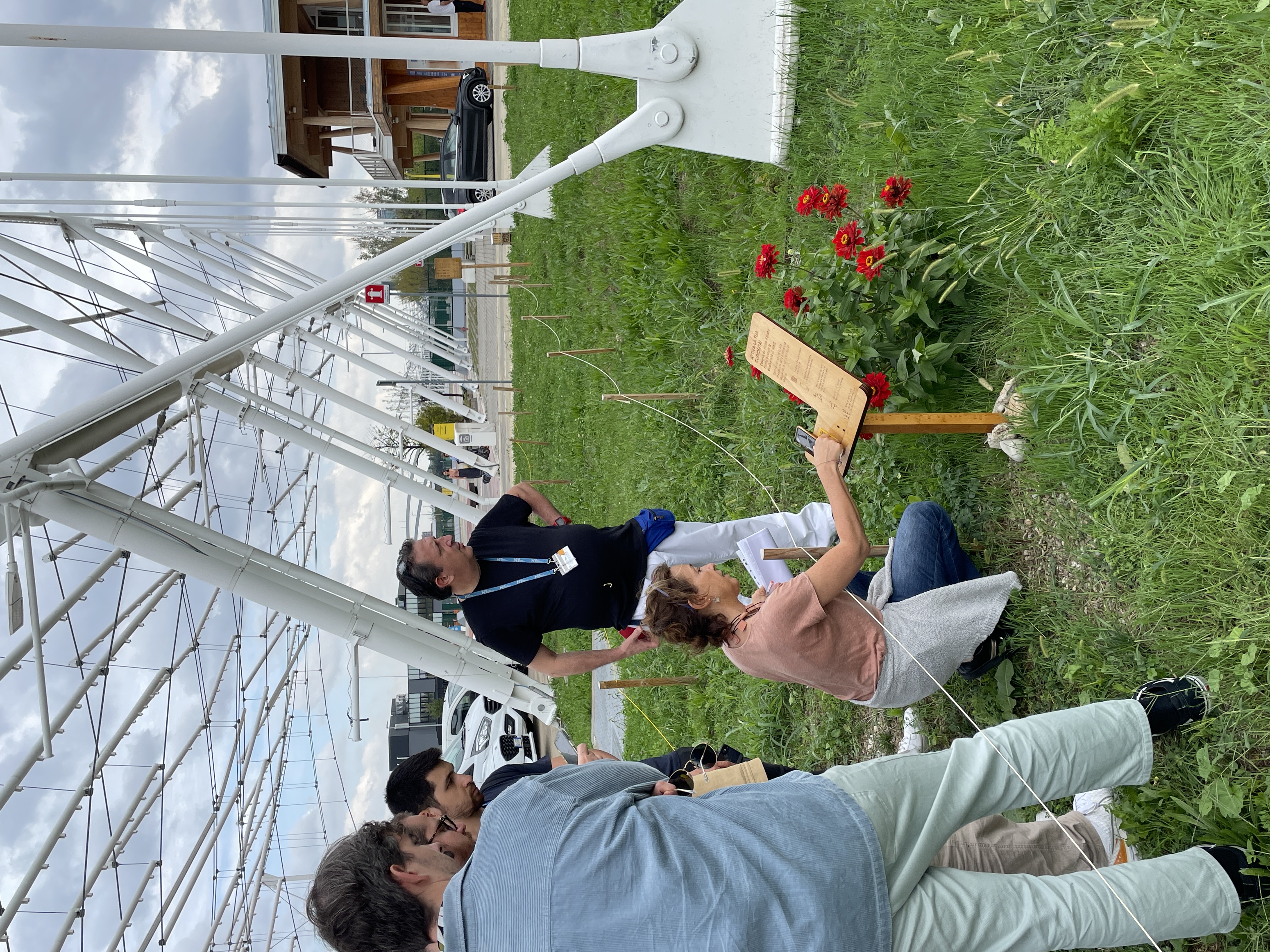
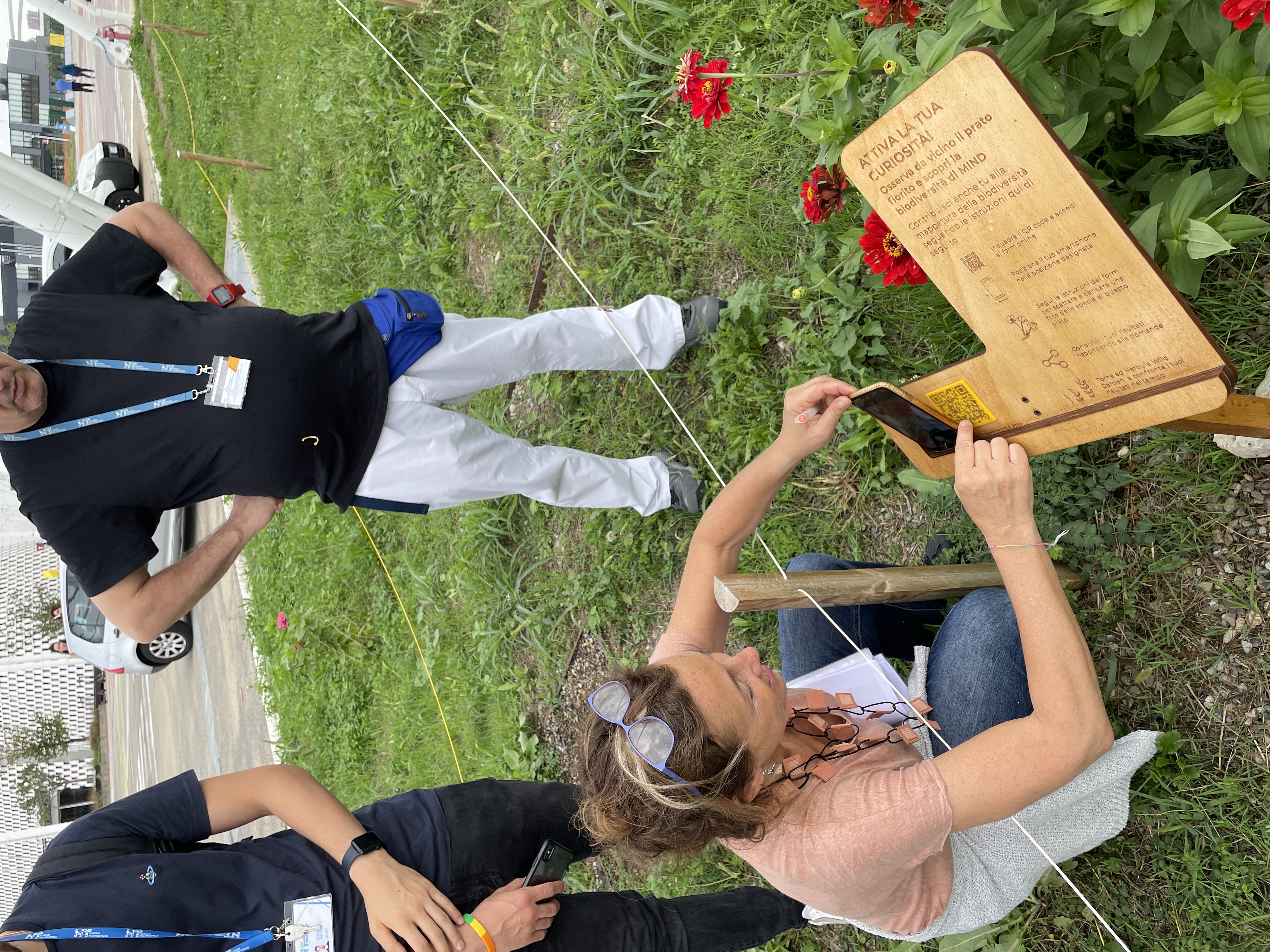
Authors: LAND
- Conscious and Sustainable Lifestyles
